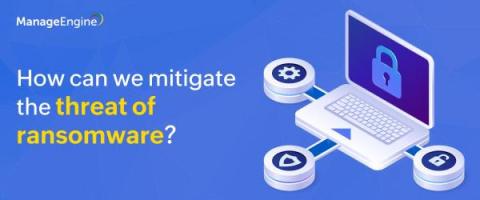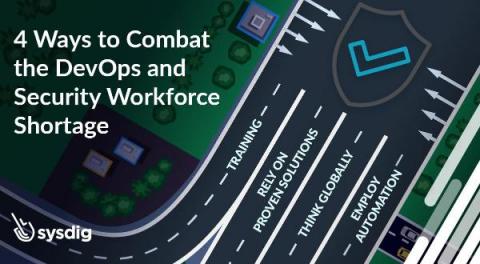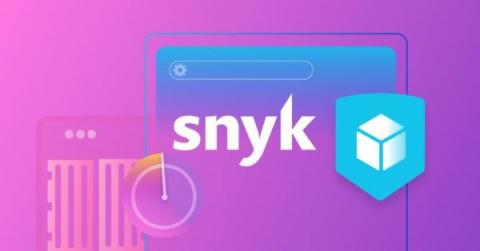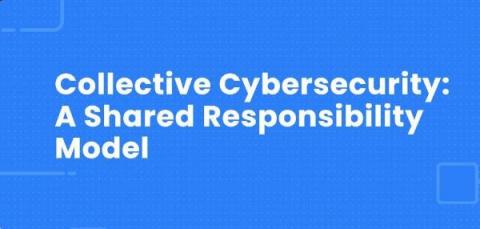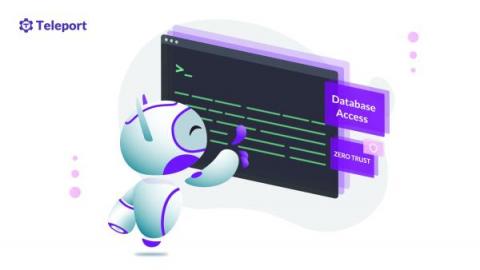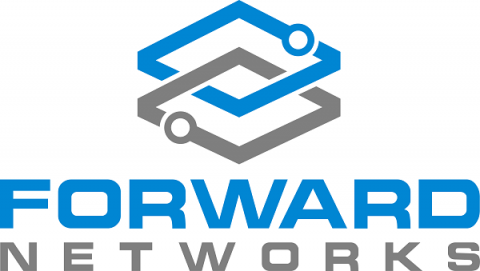Security | Threat Detection | Cyberattacks | DevSecOps | Compliance
Latest News
Massive ransomware attacks of 2021 and how to avoid them
2021 brought a new wave of cyberattacks that proved to be detrimental to the era of digitization. With more and more industries embracing work from home and treading into the digital world, an increase in network vulnerabilities is inevitable; however, neglecting to address these unseen vulnerabilities can make organizations targets for cybercriminals.
What are BEC scams and how to avoid them
To carry out business email compromise (BEC) fraud, a con artist impersonates an organization’s senior manager, business partner, or supplier and tries to manipulate an employee into transferring money to the wrong destination. The rogue message typically comes from a spoofed or previously hacked email address, which makes the foul play highly persuasive. Essentially, BEC is a type of phishing focused on the enterprise.
4 Ways to Combat the DevOps and Security Workforce Shortage
Most people are painfully aware that security breaches have increased in recent years, while at the same time becoming much more sophisticated in their approach. Additionally, ever-expanding application environments and continuously evolving workloads have created more opportunities than ever for attackers. What’s not so apparent to those outside of the tech bubble: The world is dangerously ill-equipped to handle the magnitude of these threats.
Using Pulumi to automate the Snyk Kubernetes integration for containers
We have all heard of the term infrastructure as code (IaC), however code in this context is not really code in the sense of a programming language. IaC usually refers to the configuration of infrastructure via tools like Terraform, CloudFormation, Kubernetes YAML, or Azure Resource Manager templates, which is really the definition of how the infrastructure will be created.
Join "The Big Fix" to secure your projects with Snyk and earn cool swag
What if there was a large, global event dedicated to finding and fixing security vulnerabilities in both open and closed-source software? An event that brings developers, DevOps, and security practitioners of all skill levels and backgrounds together to collectively make the software world more secure? Well, I’m excited to announce that Snyk has made this a reality by launching The Big Fix — a month-long event that’s running now!
How to Secure Personally Identifiable Information (PII)
PII, or Personally Identifiable Information, is any information that directly or indirectly identifies an individual, such as name, address, payment information, or contact information. The U.S. The Department of Homeland Security defines a second category of PII: Sensitive PII, which includes Social Security Numbers, driver’s license numbers, Alien Registration numbers, financial or medical records, biometrics, and criminal history.
Collective Cybersecurity: A Shared Responsibility Model
The state of cybersecurity today is, in a word, catastrophic. Breaches have become endemic. Not only do they continue at dizzying rates, but they are actually increasing in frequency by the month. Why are things so bad? And why do businesses seem so helpless to make them better? Those are complicated questions without simple answers, of course – but I believe that a major part of the answer has to do with the fact that, at most organizations, security remains the domain of elite security teams.
How Teleport Uses Teleport to Create and Maintain Shared Demo Environments
Our Solution Engineering (SE) team is full of individuals who have vast real-world experience building and maintaining complex IT access systems with sophisticated audit layers through their work as DevOps engineers. The problems that we have all faced before joining Teleport are the exact problems that our customers face. So when it comes to our demos, we like to show real-world scenarios aligned to customer usage patterns, in environments similar to our customers.
Log4Shell Peace of Mind in Minutes, Not Weeks
Discovered on December 9, 2021, the log4Shell vulnerability is one of the most talked-about vulnerabilities in computing. Because simple text can be used to take control of a device and download anything that is Internet-accessible, companies are taking it seriously. As they should – log4Shell has the maximum CVSS score of 10 (CVSS, Common Vulnerability Scoring System, is an industry-standard for ranking vulnerabilities).



